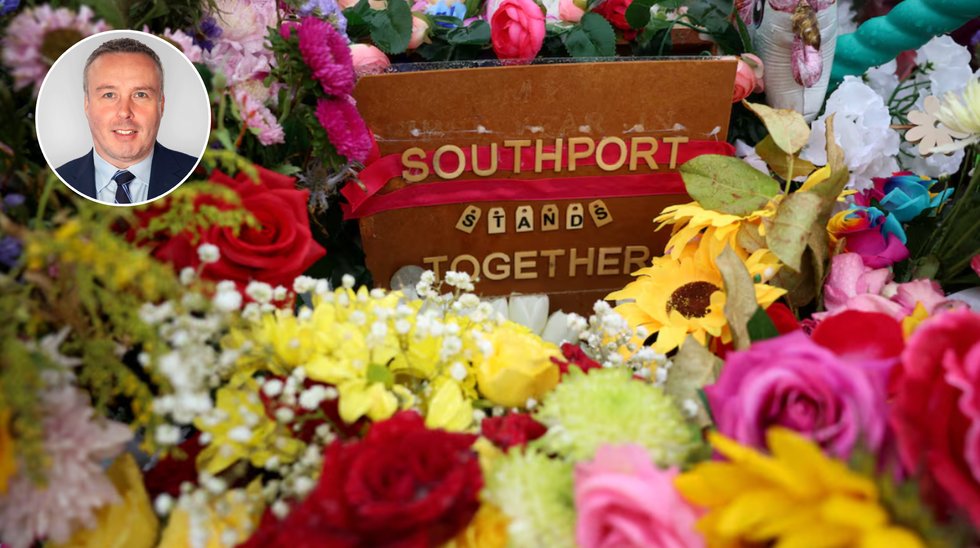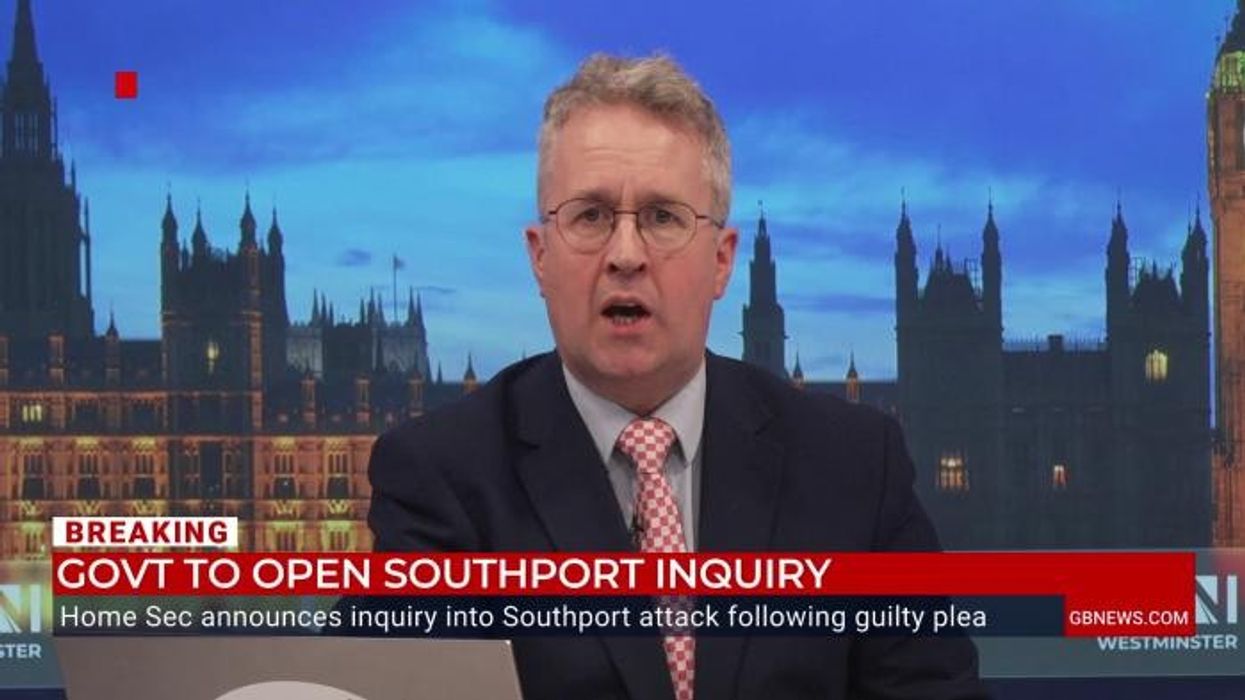Unimaginable horror and profound failures: Why justice still eludes the Southport victims one year on - Mark White
Justice for Alice da Silva Aguiar, Bebe King, and Elsie Dot Stancombe depends on a system that finally learns from its mistakes
Don't Miss
Most Read
Trending on GB News
A year on from the unimaginable horror that shattered the innocence of a children's dance class in Southport, the pain for those caught up in this tragedy is no less profound.
In the months ahead, an official inquiry will examine those events in minute detail.
But it's already clear, a number of local and state agencies failed in their fundamental duty to stop a violence-obsessed young man from going on to kill and injure in the most brutal and senseless way.
Axel Rudakubana first came to the attention of authorities at just 13, after being expelled from Range High School in Formby, for carrying a knife and assaulting a pupil with a hockey stick.
He repeatedly displayed alarming behaviour, asking Childline, "What should I do if I want to kill somebody?" and showing intense interest in school shootings and genocidal violence.
That same year, he was temporarily placed in a specialist school and referred to the anti-terrorism Prevent programme in December 2019.
This was the first of three separate referrals to Prevent between 2019 and 2021.
On each occasion, he was assessed and then dismissed from the programme, as Prevent caseworkers said no coherent ideological motives could be identified for his increasingly troubling behaviour.

Unimaginable horror followed by profound failure: Justice eludes the Southport victims one year on - Mark White
|Reuters
Over that same period, the Rudakubana family home was the scene of multiple police visits.
Officers attended the teenager's home on five occasions, triggering multi-agency safeguarding referrals.
Yet, Rudakubana’s case management remained fragmented.
Mental health services had limited engagement with him, and he disengaged entirely by early 2023.
Despite mounting and concerning evidence of a very troubled individual, professionals failed to coalesce observations across education, policing, mental health and social care channels.
At its core, Prevent is designed to flag individuals drawn to political or ideological extremism.
Rudakubana’s case exposed the programme’s inability to manage non-ideological violence.
Although he downloaded an al‑Qaeda training manual and researched how to manufacture the biological toxin ricin, investigators concluded his actions lacked ideological coherence - and so he didn't meet Prevent’s thresholds for intervention.
An urgent Prevent learning review, launched after the attack, found that "the cumulative significance of his three separate referrals was not properly considered."Nor was his escalating fixation with extreme violence.
Prevent officials now admit the case should have been escalated into the Channel programme, the multi‑agency counter‑radicalisation process, which may have been able to intervene in a more meaningful way.
Among some of the most basic, yet profound blunders, Rudakubana's surname was misspelt in Prevent’s internal database after his two referrals to them in 2021.
This simple clerical error likely prevented supervisors from seeing his earlier flags, leading to the premature closure of the case.
Prevent’s IT system was also unable to process screenshots, like the disturbing online searches he made through social media posts, that might otherwise have raised red flags.
Guidance at the time also discouraged home visits after a first referral, complicating efforts to gather further information.
Earlier this month, an independent review by Lord Anderson KC made 10 recommendations.
It concluded that Prevent must adapt to online behaviour and broaden its remit to include those obsessed with violence without ideology.
But the Southport tragedy demands that lessons be more than academic.
Rudakubana slipped through Prevent's ideological filter, but the deeper breakdown was multi‑agency - siloed data, poor IT systems, lack of mental health coordination, and training that prioritised ideology over real‑world risk.
A year on, justice for Alice da Silva Aguiar, Bebe King, and Elsie Dot Stancombe depends on a system that finally learns from its mistakes.











